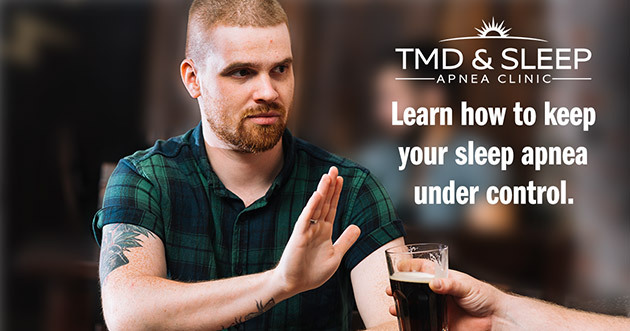
Alcohol Aggravates Sleep Apnea Symptoms
You probably know that drinking alcohol has an effect on your quality of sleep, but did you know that for sleep apnea patients, it can make symptoms worse? It’s been shown that moderate and heavy drinking can trigger obstructive sleep apnea (OSA), even in people who haven’t yet been diagnosed with the sleep disorder. What can you do about your alcohol consumption and sleep apnea?
Alcohol aggravates sleep apnea symptoms for a number of reasons. It causes your breathing to become slow and shallow. It can also further relax the muscles of your throat — a hallmark sign of obstructive sleep apnea that causes loud snoring and the constant gasping for air due to the collapse of the upper airway. What’s more, alcohol actually diminishes the wakeup response, so your body is slower to respond when your breathing stops. This causes you to go without oxygen for an extended period of time. The result of all this is that your daytime symptoms will be worse — you’ll feel even more fatigued and drowsy during the day.
Avoiding alcohol will help control your sleep apnea, but if you do drink, try not to consume alcohol within a few hours of bedtime. This will help your body metabolize the alcohol before you fall asleep, decreasing its effect on your quality of sleep. Choose beverages with a lower alcohol by volume (ABV) percentage and limit yourself to one or two drinks. Also, avoid sleeping on your back and instead sleep on your side. This can help keep your airways open.
These are just a few ways you can manage your sleep apnea symptoms so you can enjoy restful sleep and be energized and alert during the day. If you have any questions about how your lifestyle contributes to your OSA symptoms or what you can do to help change them, please feel free to contact our office. I am happy to help!










